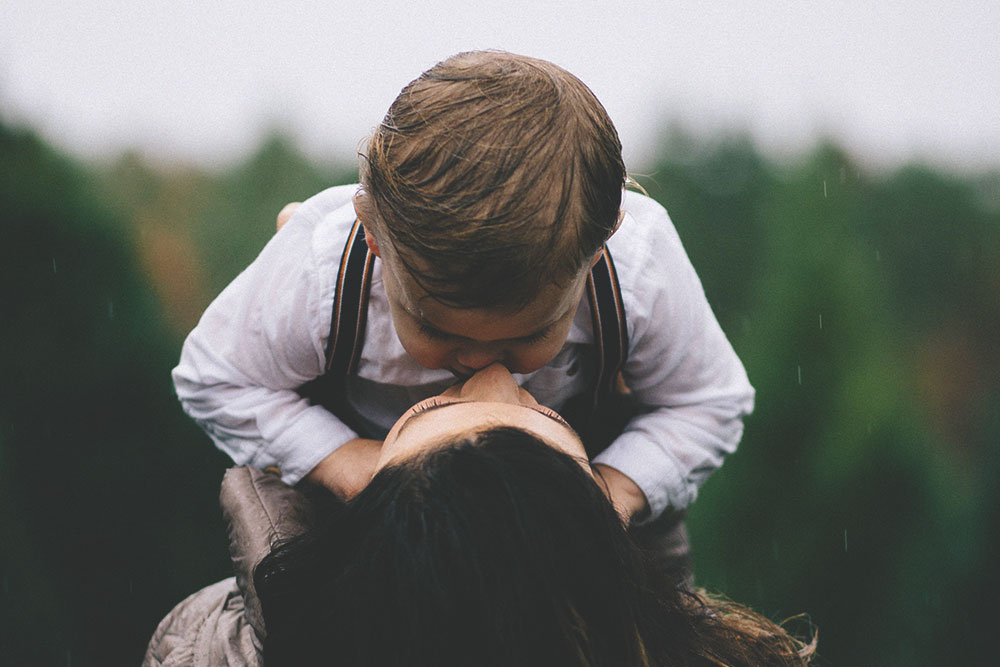While the awareness of postpartum depression has grown considerably in recent years, many women still suffer in silence. Let’s better understand the reality of what a postpartum recovery may look like.
BY: CRYSTAL KARGES, MS, RDN, IBCLC
Postpartum depression.
The words alone are difficult to say. Perhaps it is the stigma that seems to hover over every syllable, or the shame that is automatically associated with mental illness.
I remember it well: I could not bring myself to confront the reality of postpartum depression until after having three babies, and even then, it was like having a brick thrown to my face.
What does this mean? How can I get through this? How do I share this with my family? Does this make me a bad mother?
Like many women before me, I was blissfully ignorant about anything about postpartum depression (PPD). Every euphoric day of my pregnancy had me anticipating what the early days of my motherhood journey might be, but actually experiencing it crushed those fantastical ideas.
Maybe that is part of the problem. With the intensity of buildup surrounding pregnancy itself, few women are prepared for some of the strenuous challenges that come ahead after that sweet baby is placed in your arms. Because PPD is still a taboo subject to talk about, many moms, including myself, may feel that it is socially unacceptable or will display inadequacies as a mother – therefore, it’s better to keep silent and the struggle to yourself.
However, what is the reality of PPD? Here are 3 things to remember:
1. It is highly common.
Research shows that 1 in 7 women will develop PPD after childbirth, though the number is likely much higher as PPD is often underreported. My ideas of postpartum depression were founded on faulty ideas and stigmas that we have all undoubtedly seen through how our culture portrays women and new moms.
“How can you feel depressed when you have a new baby?”
I would come to find out that it is more than just “feeling blue”, and the curious juxtaposition of experiencing both joy and sorrow simultaneously in the motherhood journey is a heart-wrenching thing.
2. It is often unseen.
Postpartum depression can feel like a dark abyss of disconnectedness. As much as I wanted to be a mother and as often as I had dreamed about holding my new baby in my arms, I felt as though I did not know her at all, which is a frightening place to be.
When we hear of PPD, we often see extreme cases that make the news or circulate the media, but postpartum depression doesn’t necessarily manifest as urges to hurt one’s child or hallucinations. I seemed to be able to go through the motions of having a new baby all while under a dark cloud of anxiousness, loneliness, hopelessness and depletion. For the first few months after our daughter was born, I justified what I was experiencing.
“How could I have such intense feelings of despair when I’m with one the greatest and most precious gifts in my life? This must be what all new moms experience. I feel like this because I’m trying to juggle too much.”
But when PPD persists, those thoughts began transitioning to feelings of inadequacy and shame as a mother, which further fueled and exacerbated the crushing overwhelm I was already experiencing.
3. There is hope for healing through support and community.
As women and new mothers, we are unequipped to prepare for the many surmounting emotions and feelings that we may experience. Coupled with the rapid physical changes we are also enduring from pregnancy and childbirth, the recipe too often results in isolation and misunderstanding.
On top of this, we are perhaps farther removed from reality than ever before, though superficially and virtually interconnected through social media. Through what lens are we viewing each other’s lives? Carefully constructed filters and photos hide our vulnerabilities and segregate us from the pain, shame, and destruction that we often suffer through alone.
By being open and sharing our stories, others will continue to find comfort in knowing that they are not alone in this journey; that there is no embarrassment, fear or shame in what you are struggling with. Every woman needs to know that she can reach out for help and understood there are resources for recovery and healing.
And most importantly, every woman must understand that postpartum depression and anxiety occur more commonly than we think, and experiencing this does not make you a bad mother.
We are often hesitant to speak out about what we are dealing with because there continues to be a blanket of shame around PPD rather than acceptance and support. As we continue to bring this issue into the light, let us lift up our mama community with compassion and kindness, for all the complexities and life-transforming experiences we will undergo as mothers who deeply love our children.
If you are struggling with postpartum depression and needing support, please reach out to the Postpartum Support International for help, information, and resources.
Adapted from the original article.
Crystal Karges, MS, RDN, IBCLC is a San Diego-based private practice dietitian helping others embrace their health for themselves and their loved ones. Focusing on maternal/child health and eating disorders, Crystal creates the nurturing, safe environment that is needed to help guide individuals towards a peaceful relationship with food and their bodies.

